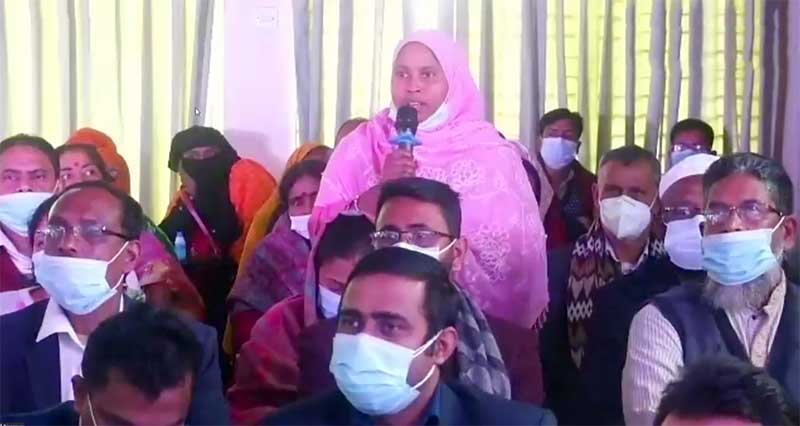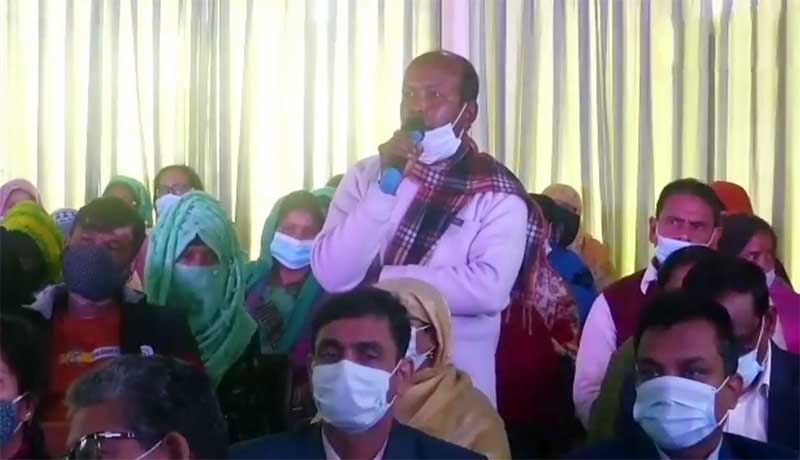In order to increase the effectiveness of the relief program against COVID-19, multidimensional measures need to be considered taking into account local level poverty rate, population, unemployment rate, etc., rather than relying only on a single indicator to determine the allocation. Raising public awareness about technology-based initiatives related to relief services is critically important. Further steps are needed to increase the transparency of the beneficiary selection process of relief support programmes, including the formulation of campaign plans in accordance with the implementation guidelines. In addition, various information related to relief services such as allocation, distribution, list of beneficiaries, use of ‘hotline’ numbers, should be properly stored in the database and initiatives should be taken to manage them.
To ensure efficient utilisation of government’s assistance and to prevent wastage while implementing the agricultural rehabilitation/incentive programmes, allocations and distribution of seeds and fertilisers should be made in view of the actual loss at the local level as well as according to the local farmers’ demand and crop production pattern. Union/Upazila level database has to be created, where all the information starting from the socio-economic status of the farmers to crop production will be collected regularly. Union Digital Centers can be used for this purpose too. GO-NGO collaboration needs to be enhanced to ensure that government’s agricultural incentives reaches the most affected farmers. It is necessary to update the list of farmers and take initiative to distribute new agricultural cards. Collateral-free loans should be provided to the farmers on the basis of intensive supervision and the process of recruitment of agricultural staffs should be expedited in view of the government jobs allotted at the field level for smooth distribution of agricultural incentives. Special initiatives should be taken to ensure distribution of agricultural loans to sharecroppers and reliefs to the unemployed people returning to rural areas.
These observations emerged at the virtual dialogue titled, ‘‘Relief Supports and Agricultural Incentives in Response to COVID-19 and ‘Amphan’: The Effectiveness of Public Service Delivery’’ organised by the Centre for Policy Dialogue (CPD), the Oxfam in Bangladesh & the European Union (EU) and in association with Dak Diye Jai and the Citizen’s Platform for SDGs, which was held on Sunday, 31 January 2021.

Dr Fahmida Khatun, Executive Director, CPD, Dr Dipankar Dutta, Country Director, Oxfam in Bangladesh and Mr Md. Shahjahan Gazi, Executive Director, Dak Diye Jai delivered the welcome remarks. COVID-19 pandemic is having a far-reaching impact on the development progress of Bangladesh. They commented that this pandemic is further aggravating the challenges in implementing the Sustainable Development Goals (SDGs). The recent devastating cyclone ‘Amphan’ in the coastal districts has further complicated the situation.
Mr Towfiqul Islam Khan, Senior Research Fellow, CPD and Mr Mostafa Amir Sabbih, Senior Research Associate, CPD made the keynote presentation. The presentation noted some problems and challenges in the overall implementation of relief and agricultural rehabilitation/incentive programmes to address Corona and ‘Amphan’. Ensuring adequacy of allocation and distribution, increasing campaigning for services, enhancing citizen participation in the beneficiary selection process at the local level (especially in the case of cash transfers) and having multiple options in case of conditions with regard to future programmes such as BDT 2,500, are needed to make the relief program effective. According to information received from Indurkani Upazila, a list of 4,000 people eligible for humanitarian assistance of BDT 2,500 was sent to the national level. According to the information received from the district and upazila administrations, about 60% of the people have received this assistance so far. Initiatives should be taken towards speedy disbursement of cash to those who are enrolled but have not yet received assistance. In order to make the agricultural rehabilitation program for small and marginal farmers more effective in dealing with disasters, it is necessary to assess the demand and ensure adequate allocation based on it and inform the affected farmers about agricultural incentives and prepare a priority list of actual affected farmers in coordination with NGOs.
Mr S M Rezaul Karim, MP, Hon’ble Minister, Ministry of Fisheries and Livestock was present as the Chief Guest at the dialogue and showed his concerns regarding the intensity of the situation. He also spoke about the joint efforts of various non-government organisations in implementing government initiatives to deal with this disaster.
Mr Abu Ali Md Shazzad Hossain, Deputy Commissioner and District Magistrate, Pirojpur joined the virtual dialogue as the Special Guest and pointed out the various initiatives of the DC Office. Addressing the situation, he said that food security was ensured for all in Pirojpur district. There were no casualties due to adequate cyclone shelter. Appreciating the efforts of NGOs for their adequate assistance to the affected people, he also added that the role of NGOs in the success of the government in dealing with disasters was crucial.
Dr Debapriya Bhattacharya, Convenor, Citizen’s Platform for SDGs, Bangladesh and Distinguished Fellow, CPD summarised the dialogue by addressing this discussion as encouraging, informative and participatory. He stated that poverty-based and risk-based relief supports are far more effective than population-based relief efforts. More data and administrative coordination is needed to ensure its effectiveness. He emphasised on mass awareness creation to reach out to the people in need.
Professor Mustafizur Rahman, Distinguished Fellow, CPD moderated the event. In his closing remarks, he referred to civil rights and said that there is a need to ensure transparency and accountability through such dialogues.

Around one hundred members of community-based organizations (CBOs) from Pirojpur and local people’s representatives joined the dialogue and presented various suggestions and comments. They said in reference of their grassroots experience that there is a shortage of drinkable water in the region due to this disaster. Mr Hossain Mohammad Al-Muzahid, Upazila Nirbahi Officer, Indurkani, Pirojpur was present as the Guest of Honour at the dialogue.
The CPD, Oxfam in Bangladesh and the EU are jointly implementing a project in 13 districts of the country titled “Enhancing the participation of CBOs and CSOs in democratic governance of Bangladesh” to provide support to the SDG implementation process of the Government of Bangladesh. The objective of the project is to build the capacity of the local government and all other stakeholders in the non-government sector to participate and actively contribute to the SDG implementation process. The virtual dialogue was held under this project.
Prominent civil society figures including local political leaders, government officials, academics, development workers, NGO representatives, private sector entrepreneurs, social workers and journalists also took part at the dialogue.


